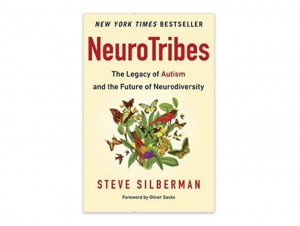Dr. Coplan continues his discussion based a reading of Steve Silberman’s Neurotribes: The legacy of autism and the future of neurodiversity.
September 23rd, 2015 by drcoplan Dr. Coplan continues his discussion based a reading of Steve Silberman’s Neurotribes: The legacy of autism and the future of neurodiversity.
Asperger’s Syndrome has typically been viewed by medical professionals and the lay community alike as milder than Kanner type autism. The fact that the American Psychiatric Association has purged the term Asperger Syndrome from the lexicon doesn’t solve the fundamental problem, i.e. what are we talking about when we use either of these terms? What is the full extent of the condition, and where is the boundary with “normal” (if such a boundary exists)?
Silberman constructs a narrative with two opposite, but complementary poles: On the one hand, Kanner (and his allies within the American psychiatric community) sought to depict autism as a rare, severe disorder. On the other hand, Asperger’s work – when it was belatedly acknowledged many decades later – was always pigeonholed as dealing with bright, hyperverbal “little professors.” We will get back to Kanner in a future post. For now, let’s focus on Asperger. Read the rest of this entry »














